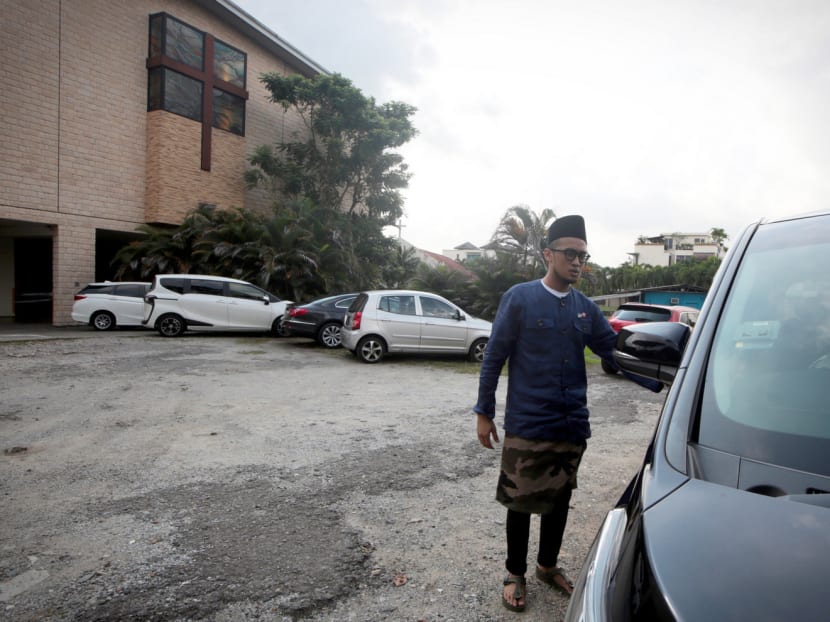Mosque, church work hand in hand to ensure a smooth celebration on Sunday
SINGAPORE — With Hari Raya Aidilfitri falling on a Sunday this year, a neighbouring mosque and a church in Upper Thomson had their work cut out to coordinate and control traffic around their compounds on Sunday (June 25).

A mosque congregant walking to his car, parked at Spiritual Grace Presbyterian Church, after attending Hari Raya Aidilfitri activities at Masjid Ahmad Ibrahim yesterday. Photo: Jason Quah
SINGAPORE — With Hari Raya Aidilfitri falling on a Sunday this year, a neighbouring mosque and a church in Upper Thomson had their work cut out to coordinate and control traffic around their compounds on Sunday (June 25).
But the strong relations the two places of worship, separated only by a small neighbourhood park, have shared for over two decades made a difference.
Ahead of its Sunday service, Spiritual Grace Presbyterian Church opened up its car park to congregants driving to Masjid Ahmad Ibrahim in Jalan Ulu Seletar.
The mosque, which saw a congregation of 1,500 yesterday — almost double the usual size — in turn appointed traffic wardens to ensure that the car park was cleared out in time for church members’ use.
Although the mosque had obtained a Land Transport Authority (LTA) licence for visitors to park by the road in view of the crowd and to minimise inconvenience to churchgoers yesterday, the church decided to help alleviate the situation.
This was an extension of the cooperation between the two religious institutions, whereby the church allows mosque congregants to park in its compound on Fridays, while church staff were invited to the mosque for iftar (break fast) sessions.
Indiscriminate parking had become a problem for the mosque, established about 50 years ago, as its congregation grew, said chairman Ali Salleh, 57. It has even put up an enlarged version of an LTA advisory outside the mosque warning congregants that the authority would take enforcement action against those who park illegally.
The church, which has been at Sembawang Road for almost a century, then decided to share its parking space. Its leaders also notify mosque elders when they see vehicles parked along the road. This initiative became an “official partnership” 20 years ago.
Mosque congregants occupy about 50 to 60 lots at the church each Friday, said Mr Ali. And they have typically been responsible users, added the church’s senior pastor Michael Phua.
“They’re very neat and have never messed up our place. And today (Sunday), they started to move out before the bulk of our church members came,” said Mr Phua, 55, who grew up in the neighbourhood and has known many of the mosque’s leaders since childhood.
“They’ve always been my neighbours. Now, we’re neighbours and friends. And it’s not only when there’s a special occasion, but we stand together anytime,” he said.
Mr Ali characterised the relationship as a broad “mutual understanding” and said the institutions hope to collaborate on more initiatives that can involve more residents, such as setting up a community garden.
Mosque manager Izuan M Rias, 47, however, feels that Singaporeans of different faiths must engage in “deeper dialogue”, beyond programmes and activities, in the current security climate.
Existing interfaith initiatives have been “scratching the surface”, he said, noting that stronger understanding is necessary to prevent Islamophobia: “Such conversations can highlight similarities between various religious groups, such as desire for peace and relationships.”
While the authorities have put in such efforts, he said institutions and individuals themselves must step up on this front: “The people need to want to understand one another and build a bridge.”
Such efforts can start with youths who are exposed to wider influences online, while the elderly can be invited to share meaningful stories of interracial and inter-religious friendships they are part of, said Mr Izuan.









